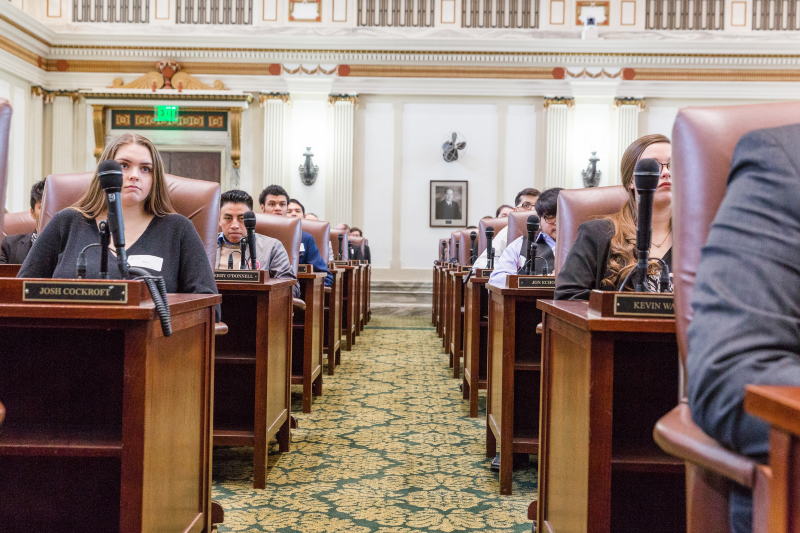By Dana Harris, Advocacy Director
There are few things that we, as an American population, nearly universally agree on. Yet, one of them is that civics education is a good thing. Prior to the 2016 elections, most people would call it an important subject but would fall short of thinking it was the most important. The combined lack of urgency and lack of opponents, allowed the practice and field of civics to go stale and fall behind other key school subjects without much notice.
In the period following the 2016 election, the tenor around civics education shifted. Suddenly the consequence of its inadequacy became apparent and individuals across states, sectors, and aisles, began elevating it as a national education priority.
This fall we saw two major policy initiatives recognize this need for civics. On the one hand, Massachusetts signed the most comprehensive civics education bill in the nation into law requiring student-led civics projects (Action Civics!) and establishing a funding mechanism for implementation. On the other hand, a new federal civics education bill, ‘Constitution education Is Valuable In Community Schools’ or “CIVICS Act,” was introduced which would require all federal funding allocated for civics and history education to be given to schools that teach the Constitution, its history and principles.
What seems to be absent from some calls for more civics, is the recognition that not all civics education is created equal. Because the subject, and field of civics education, have been long overlooked and underfunded, there has been insufficient public education about what constitutes effective civics education.
As civics (and specifically Action Civics) educators and advocates, we know that the vision of civics portrayed by the Massachusetts law and the federal CIVICS Act would bring fundamentally different education to students. The former, like our program, will cultivate youth as civic actors assuming it is sufficiently resourced and implemented. The latter may actually limit what students learn and its impact on future engagement in their communities.
So it is incumbent upon those of us who have seen what works, to make a case for not just more civics, but better civics.
If we are to expect people to not just be bystanders of government throughout their lives, but active participants who are informed and engaged, civics education cannot be solely the rote memorization and recitation of historical documents and facts. Rather, just like we offer students science labs alongside their science classes, we must offer students the opportunity to apply and practice what they learn in their civics classes in civics labs: their communities.
An effective civics education that develops the knowledge, skills, and dispositions needed for all youth to become civic actors must include basic knowledge about the structures and functions of government and a citizen’s role and responsibilities within it, but it must also do more. It must be action-oriented, allowing students to collaborate and engage in meaningful tasks that practice civic engagement. It must incorporate student voice and decision making to ensure that students are empowered and invested in their work and its outcomes. It must be rooted in the real-life experiences of students from of all races and backgrounds. And it must be taught through an equity lens whereby students understand the historic disenfranchisement of certain populations, particularly due to race, place, and socioeconomic status, and what it takes to achieve a truly representative democracy.
Moreover, civics education demands real investment from communities, school and school district leaders, states, philanthropists and our federal government. To ensure an education system in which every student no matter their race, socioeconomic status, or geography has access to an equally high quality civics education, states must implement policies that position schools to provide it. To provide the civics education our students deserve, teachers must be trained and infrastructure must be built at the state and school district levels to offer professional development opportunities, curricula, and accountability systems.
The recently introduced CIVICS Act does not represent this investment. We are thrilled that the Massachusetts law does.
It is encouraging to hear the many cries for more civics but we need more than cries. It’s time for our nation to complement renewed interest in civics with critical thought about what we need from our citizens on election days, and the months in between, and to build and support an education system that can cultivate those citizens.
Generation Citizen is a nonpartisan, 501(c)3 tax exempt organization which does not endorse candidates; our goal is to engage our staff, participants, and stakeholders in political and civic action on issues that matter to them personally and in their communities. The opinions expressed in this blog post are those of the writer alone and do not reflect the opinions of Generation Citizen.
